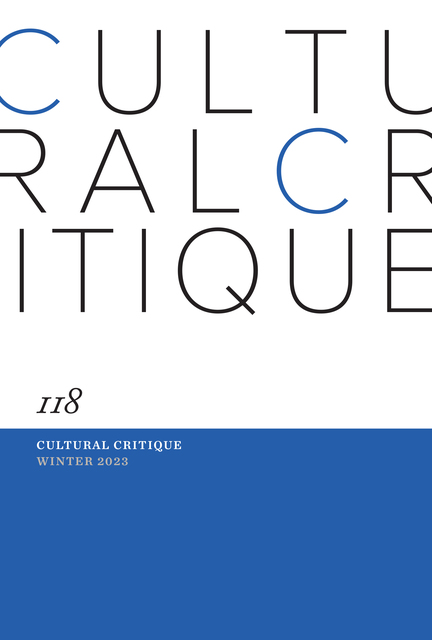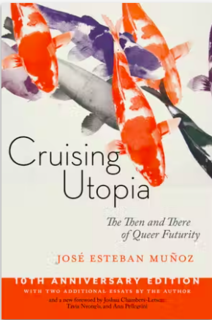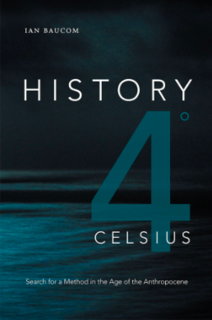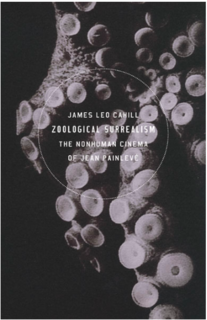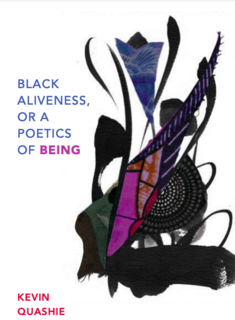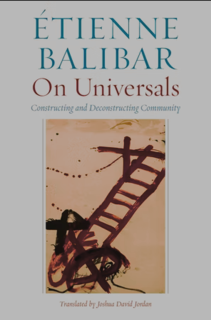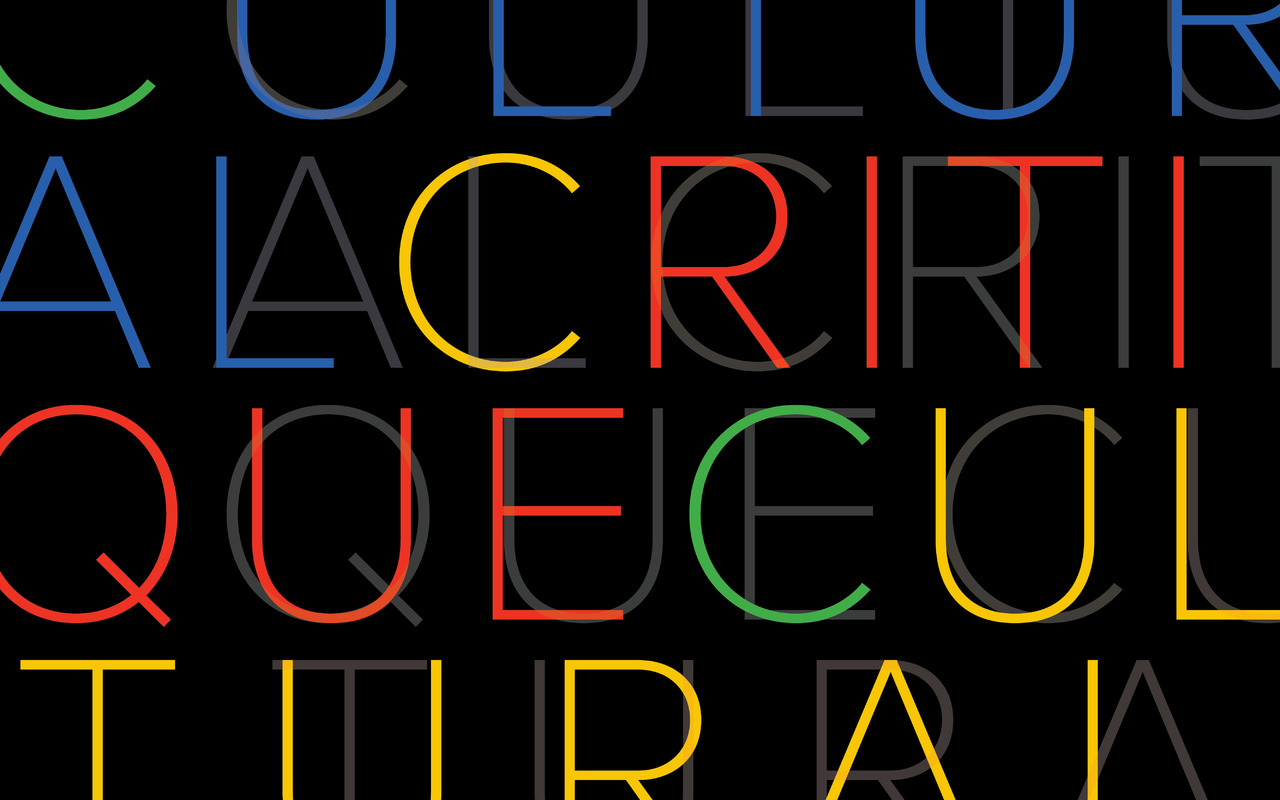
Cultural Critique Online
Issue 118, Frame 3
Welcome to Cultural Critique Online, the open-access online section of Cultural Critique. This journal provides a forum for creative and provocative scholarship in the theoretical humanities and humanistic social sciences. Transnational in scope and transdisciplinary in orientation, the journal strives to spark and galvanize intellectual debates as well as to attract and foster critical investigations regarding any aspect of culture as it expresses itself in words, images, and sounds, across both time and space. The journal is especially keen to support scholarship that engages the ways in which cultural production, cultural practices, and cultural forms constitute and manifest the nexus between the aesthetic, the psychic, the economic, the political, and the ethical intended in their widest senses. While informed by the diverse traditions of historical materialism as well as by the numerous critiques of such traditions from various parts of the globe, the journal welcomes contributions based on a variety of theoretical-methodological paradigms. Cultural Critique Online on Manifold expands Cultural Critique’s existing web presence to include new open-access book reviews, short articles, interviews, and more.
Cover design by Jeenee Lee
Texts
Reviews
- This text has 0 annotations
- This text has 0 highlights
- This text has 0 annotations
- This text has 1 highlight
- This text has 0 annotations
- This text has 0 highlights
- This text has 0 annotations
- This text has 0 highlights
- This text has 0 annotations
- This text has 0 highlights
Essay
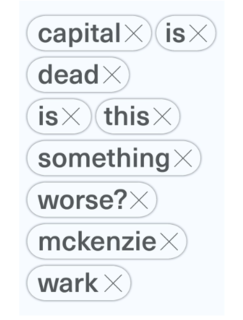
Capital is Dead—as in Freud’s Dead Father?Marx in the Era of Informatized Capital
A. Kiarina KordelaIn this piece I engage with McKenzie Wark’s Capital is Dead: Is this Something Worse? in an attempt to clarify certain central concepts in Marx’s theory that I consider indispensable to understanding today’s era of informatized capital. While Wark claims that we are past capitalism and that, accordingly, Marx is obsolete in grasping and acting within today's socio-economical world, I argue that today we are actually experiencing a culmination of capitalism as conceived by Marx and that, accordingly, his work could not be more apposite. In the first section I set Wark’s argument in dialogue with Kojin Karatani who has already addressed the question regarding Marx’s relevance to informatized capitalism. In the second section I address the meaning of and the relation between the concepts of, on the one hand, essence, abstract, and eternity, and, on the other hand, change, concrete, and historical time, as they present themselves in Marx’s historical materialism. The last section argues that informatized capital amounts to the overlap of the forces and relations of production, and that this overlap enables unforeseen levels of economico-affective exploitation, as anticipated by Marx’s concept of surplus labor.
- This text has 0 annotations
- This text has 0 highlights
Metadata
- container title
- issn1534-5203
- publisherUniversity of Minnesota Press
- publisher placeMinneapolis, MN
- restrictionsAll rights reserved. No part of this publication may be reproduced, stored in a retrieval system, or transmitted, in any form or by any means, electronic, mechanical, photocopying, recording, or otherwise, without the prior written permission of the publisher.
- rightsCopyright 2022 by the Regents of the University of Minnesota
- rights holderRegents of the University of Minnesota


